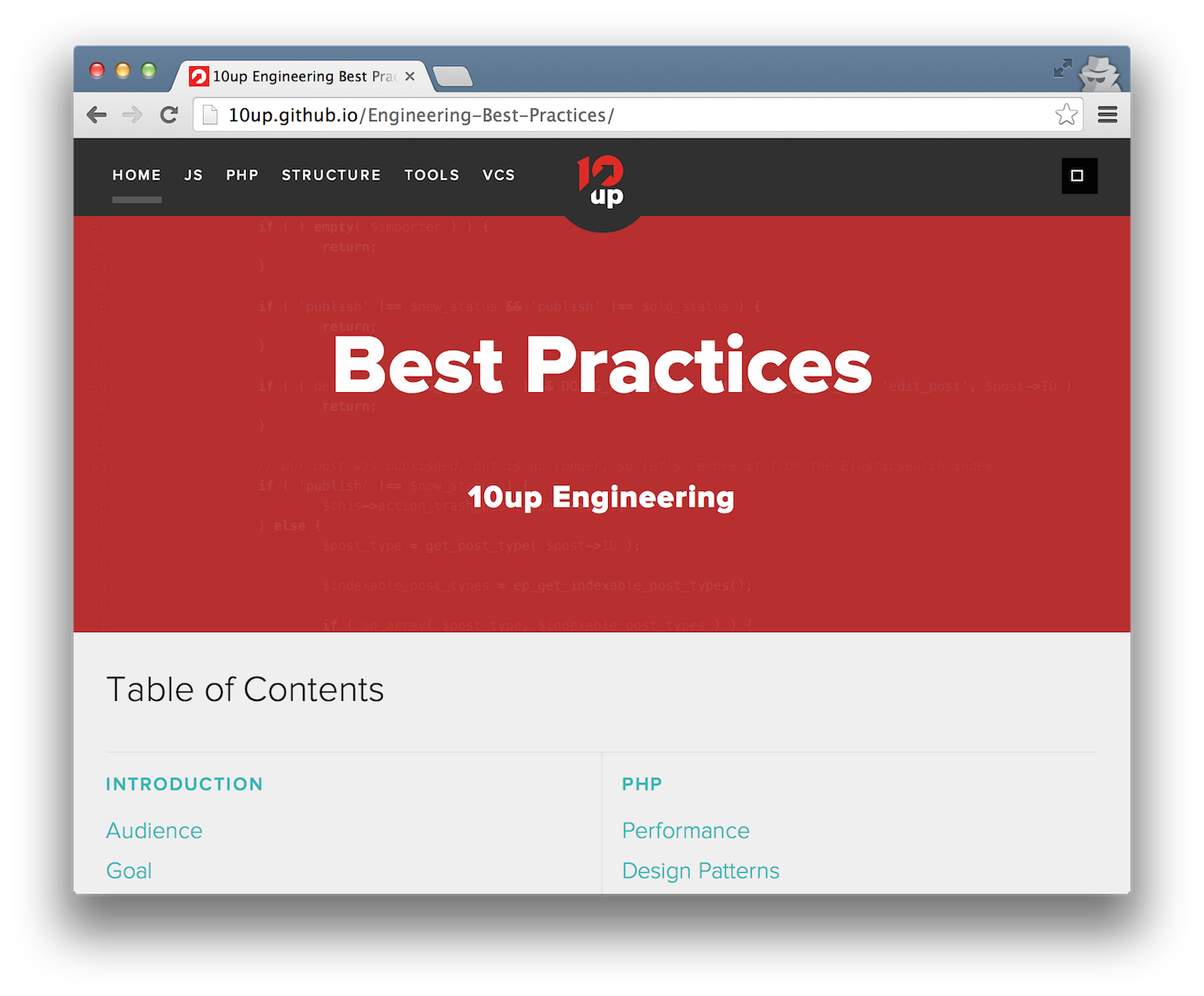Taylor Lovett, director of Web Engineering at 10up, announced today that the company is open sourcing its engineering best practices. 10up has historically been a leader in contributing to open platforms, most notably being one of the first development agencies to sponsor an employee to work full-time on WordPress core.
The company used GitHub pages to create a website featuring best practices for tools, project structure, version control, PHP, and JavaScript.
10up’s best practices were created in an effort to standardize the company’s tools, frameworks, libraries, style, version control, etc., for its employees. “Standardization in engineering is increasingly important with such a large team. Over the past few months we collaborated as a company to document how we engineer and why,” Lovett said. The result is a concise public reference for 10up’s 90+ full time employees and anyone else who is interested.
This collection of best practices and tools makes it easier for new employees to jump on board and be ready for efficient collaboration with others in the company. The in-depth guide covers everything from efficient database queries, data storage, namespacing, and security, to helpful tools for local development, dependency management, and version control.
Although the page’s description emphasizes that the content is not geared to teach anyone to become an engineer, the best practices site is undoubtedly a valuable learning resource. If you’re new to WordPress development, the site will give you an idea of the kinds of tools that a top agency uses in order to work more efficiently.
The team at 10up hopes that the best practices website will also help to influence community members. The site states that company is willing to evolve the best practices through contributions and invites folks from the community to contribute to the site’s repository on GitHub.

This is an awesome reference! Thanks for reporting it Sarah, and thanks to my former colleagues at 10up for sharing it :)
I don’t understand this bit … ” Anything intended to be private should actually be specified as protected. There should be no private fields or properties without well-documented and agreed-upon rationale.”. Does anyone reading this understand the logic behind that?